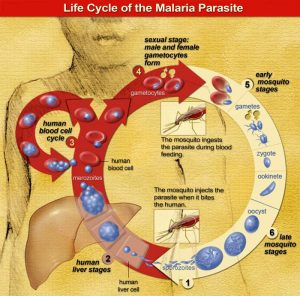By NewsDesk @infectiousdiseasenews
The Centers for Disease Control and Prevention (CDC) updated their travel notice for Burundi this week in light of the ongoing malaria epidemic in the country.

Since January 1, 2019, the Ministry of Health has reported nearly 6 million cases (out of a total population of approximately 12 million), with more than 1,800 deaths.
Health officials say to prevent malaria infection, travelers should take prescription medicine and take steps to prevent mosquito bites, particularly at night.
Concerning antimalarial drugs, CDC says resistance to chloroquine (one of the drugs used to prevent malaria) is high in Burundi, so travelers should use daily atovaquone-proguanil, daily doxycycline, or weekly mefloquine to prevent malaria.
Travelers who develop a fever while in Burundi or after traveling to Burundi should seek medical care immediately. Malaria is a medical emergency, and appropriate treatment cannot be delayed.
Malaria is a disease caused by a parasite that spreads to humans through the bite of an infected mosquito. Early symptoms of malaria resemble those of the flu, including fever, chills, sweats, headache, vomiting, and body aches. Without prompt diagnosis and treatment, malaria can rapidly progress to severe illness and death.
- Porcupine quills seized at Dulles Airport, potential monkeypox risk
- Researchers say 25% of American infants not getting common childhood vaccinations
- Singapore: High mosquito population, less common dengue serotypes increase surge risk
- Germany reports reduction in avian influenza cases
- Connecticut governor signs ‘An Act Concerning Immunizations’ removing vaccine exemptions
- Finland waits for EMA decision on Johnson & Johnson coronavirus vaccine
- Spain: Crimean-Congo hemorrhagic fever case confirmed in Salamanca province

